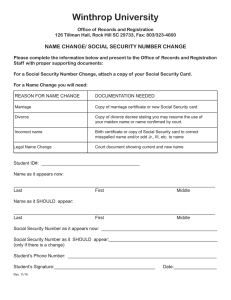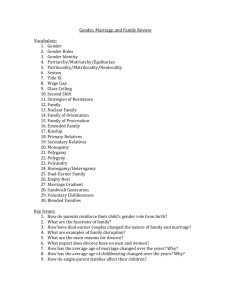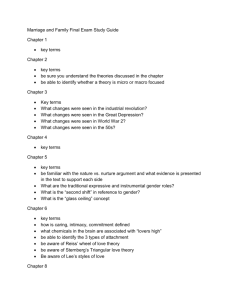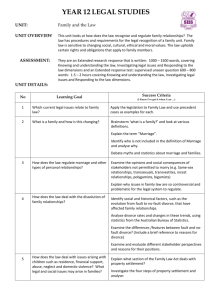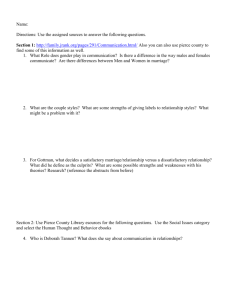Individuals and Families in a Diverse Society HHS 4M Course Outline Course Description:
advertisement
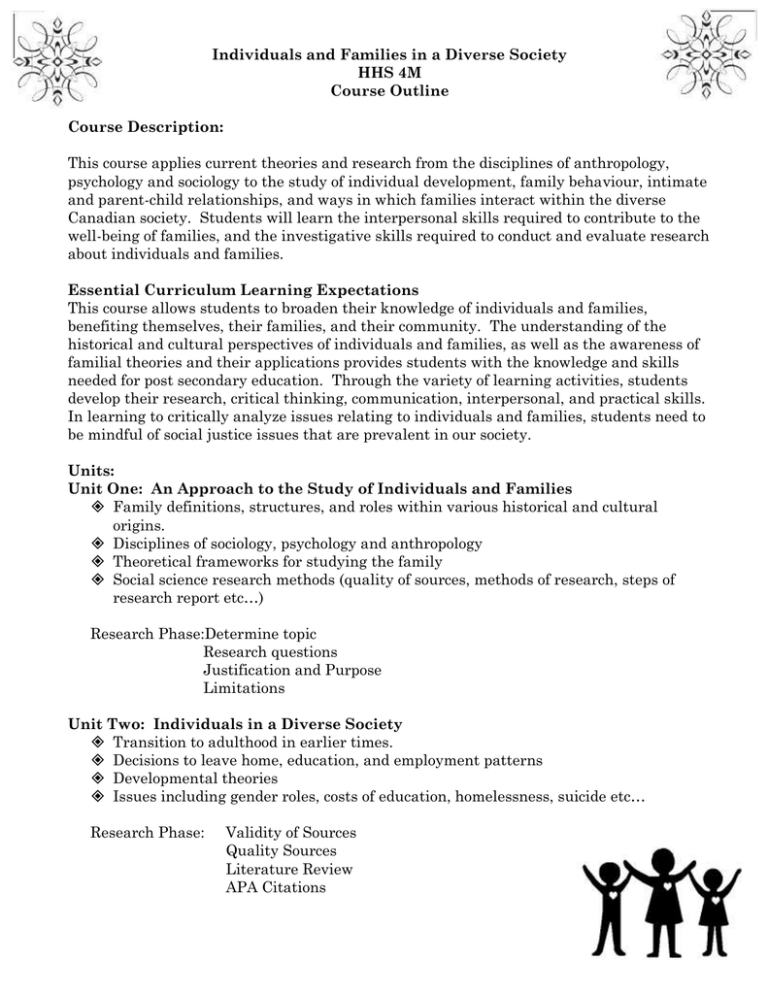
Individuals and Families in a Diverse Society HHS 4M Course Outline Course Description: This course applies current theories and research from the disciplines of anthropology, psychology and sociology to the study of individual development, family behaviour, intimate and parent-child relationships, and ways in which families interact within the diverse Canadian society. Students will learn the interpersonal skills required to contribute to the well-being of families, and the investigative skills required to conduct and evaluate research about individuals and families. Essential Curriculum Learning Expectations This course allows students to broaden their knowledge of individuals and families, benefiting themselves, their families, and their community. The understanding of the historical and cultural perspectives of individuals and families, as well as the awareness of familial theories and their applications provides students with the knowledge and skills needed for post secondary education. Through the variety of learning activities, students develop their research, critical thinking, communication, interpersonal, and practical skills. In learning to critically analyze issues relating to individuals and families, students need to be mindful of social justice issues that are prevalent in our society. Units: Unit One: An Approach to the Study of Individuals and Families Family definitions, structures, and roles within various historical and cultural origins. Disciplines of sociology, psychology and anthropology Theoretical frameworks for studying the family Social science research methods (quality of sources, methods of research, steps of research report etc…) Research Phase:Determine topic Research questions Justification and Purpose Limitations Unit Two: Individuals in a Diverse Society Transition to adulthood in earlier times. Decisions to leave home, education, and employment patterns Developmental theories Issues including gender roles, costs of education, homelessness, suicide etc… Research Phase: Validity of Sources Quality Sources Literature Review APA Citations Unit Three: Intimate Relationships and Marriage in a Diverse Society Theories about mate selection Purpose and history of marriage Legal aspects of marriage and co-habitation Historical, religious and cultural perspectives of marriage Attitudes and behaviours necessary to build satisfying and lasting relationships Issues including divorce, power/abuse, intermarriage, same-sex couples, and alternatives to marriage are explored Research Phase: Developing primary research Surveys and interviews Sample groups Getting ready to conduct primary research Unit Four: Parent-Child Relationships in a Diverse Society Development of the parent-child relationship The role of parents and children in the family, socialization patterns and parenting practices through historical periods and different cultures. Parenting styles Issues including divorce, reproductive technology, childless by choice, teen parenting, and child abuse. Research Phase Gathering primary research data Analyzing data Presenting data Textbook: Individuals and Families in a Diverse Society McGraw-Hill Ryerson, 2002 $75.00 Assessment and Evaluation Course Work Final Evaluation 70% Knowledge (Facts and Comprehension) Thinking (Problem Solving and Research) Communication (Listening, reading, writing and speaking) Application (Use of knowledge, tools and materials) 30% Culminating task 10% Final Exam 20%

